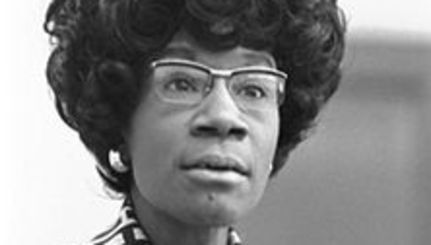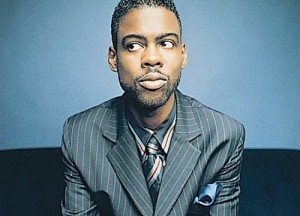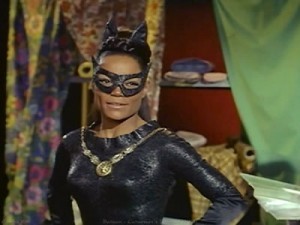Ain’t No Mountain High Enough
She Was Ahead Of Her Time
This tireless fighter for the poor made history in Congress and at the Democratic National Convention. Shirley Anita St. Hill was born in Brooklyn on Nov. 30, 1924.
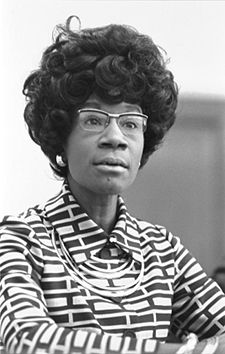
As a young girl, she was sent to Barbados to stay with her grandmother and attend the British school system, which she later credited with giving her a “good education.”
She returned to New York, where she attended Girls H.S. and Brooklyn College. She was an excellent student, graduating with honors, but she, like so many other Blacks, was unable to find work equal to her educational background. She took a job at a day-care center in Harlem. It was there that her life-long mission of helping children began. She attended Columbia University at night and received her master’s degree.
In 1949, she married Conrad Chisholm, and began to get involved in local politics.
In 1964, she ran for and won a seat in the state assembly. She fought to get funding for day-care centers and schools. She had spent much of her time with poor people and children, and was especially sensitive to their needs.
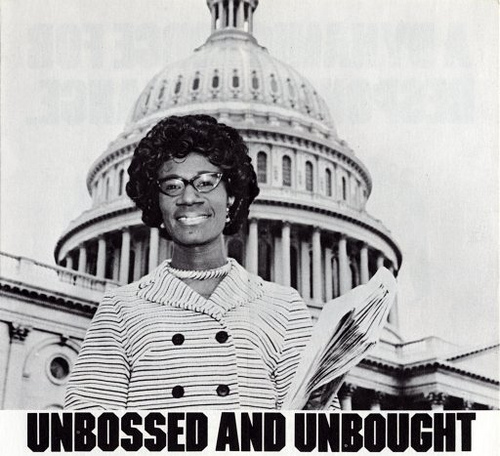 Four years later, she made history by running for and winning a seat in Congress. She was the first Black woman to do so. Her famous motto was: “Shirley Chisholm – Unbought and Unbossed.”
Four years later, she made history by running for and winning a seat in Congress. She was the first Black woman to do so. Her famous motto was: “Shirley Chisholm – Unbought and Unbossed.”
Chisholm hired an all-female staff and began focusing on women’s issues. She helped create the National Organization for Women. “Tremendous amounts of talent are being lost to our society just because that talent wears a skirt,” she said.
In 1972, Chisholm made history again as the first Black woman to run for president. Virginia Woodhull was the first woman to run, doing so in 1872.
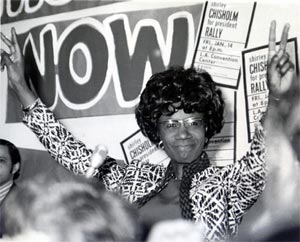 As she announced her candidacy, Chisholm said, “I stand before you today as a candidate for the Democratic nomination for the Presidency of the United States. I am not the candidate of Black America, although I am Black and proud. I am not the candidate of the women’s movement of this country, although I am a woman, and I am equally proud of that. I am not the candidate of any political bosses or special interests. I am the candidate of the people.”
As she announced her candidacy, Chisholm said, “I stand before you today as a candidate for the Democratic nomination for the Presidency of the United States. I am not the candidate of Black America, although I am Black and proud. I am not the candidate of the women’s movement of this country, although I am a woman, and I am equally proud of that. I am not the candidate of any political bosses or special interests. I am the candidate of the people.”
But Chisholm didn’t have enough political support, not even that of the male-dominated Black Caucus. Her supporters were young voters, Blacks and feminists.
The voting age had just been turned back to 18 from 21 and there were millions of young, first-time voters.

Chisholm won 151 delegates, but lost the nomination to Sen. George McGovern. She knew all along that her chances for winning were slim. “I ran for the presidency, despite hopeless odds, to demonstrate sheer will and refusal to accept the status quo,” she said.
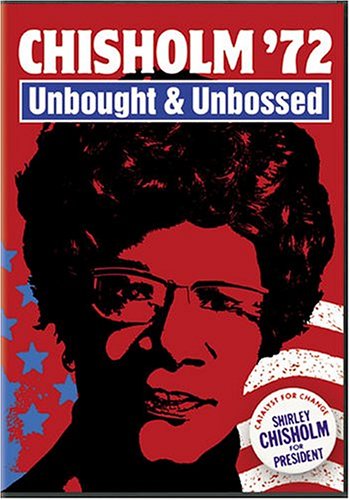
The focus of her campaign was to make way for change. She would open the door for other Black candidates, Jesse Jackson, Al Sharpton and Barack Obama, who is now our 44th president. Chisholm’s campaign, which championed the concerns of Blacks, Latinos, gays, the poor, the young and women, would serve as a model for Jackson’s Rainbow Coalition. Chisholm served for ten more years and retired in 1982 after seven terms in Congress.

Chisholm became a much sought after speaker and political mentor. She received hundreds of honorary degrees and awards for a lifetime of service.

Shirley Chisholm died on New Year’s Day, 2005, at her home in Florida. When asked how she wanted to be remembered, she said, “I want history to remember me not just as the first Black woman to be elected to Congress, not as the first Black woman to have made a bid for the presidency of the United States, but as a Black woman who lived in the 20th century and dared to be herself. I want to be remembered as a catalyst for change in America.”
On March 3, 2009, the 40th anniversary of her swearing in as a member of the House of Representatives, her portrait was unveiled at the Capital.
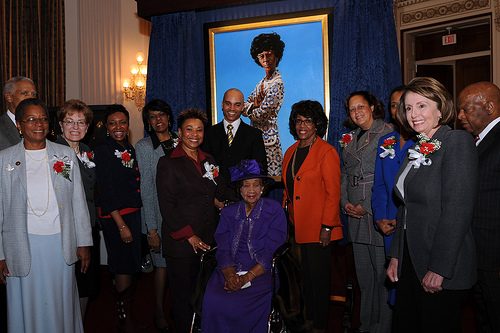
Source: Jasmin K. William

